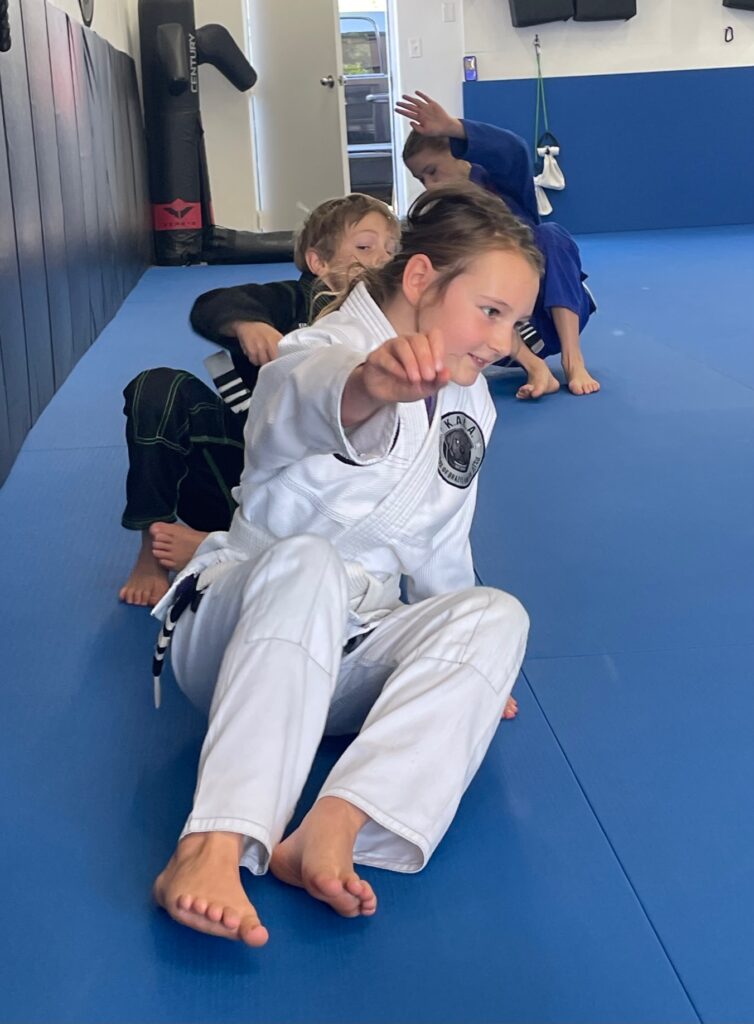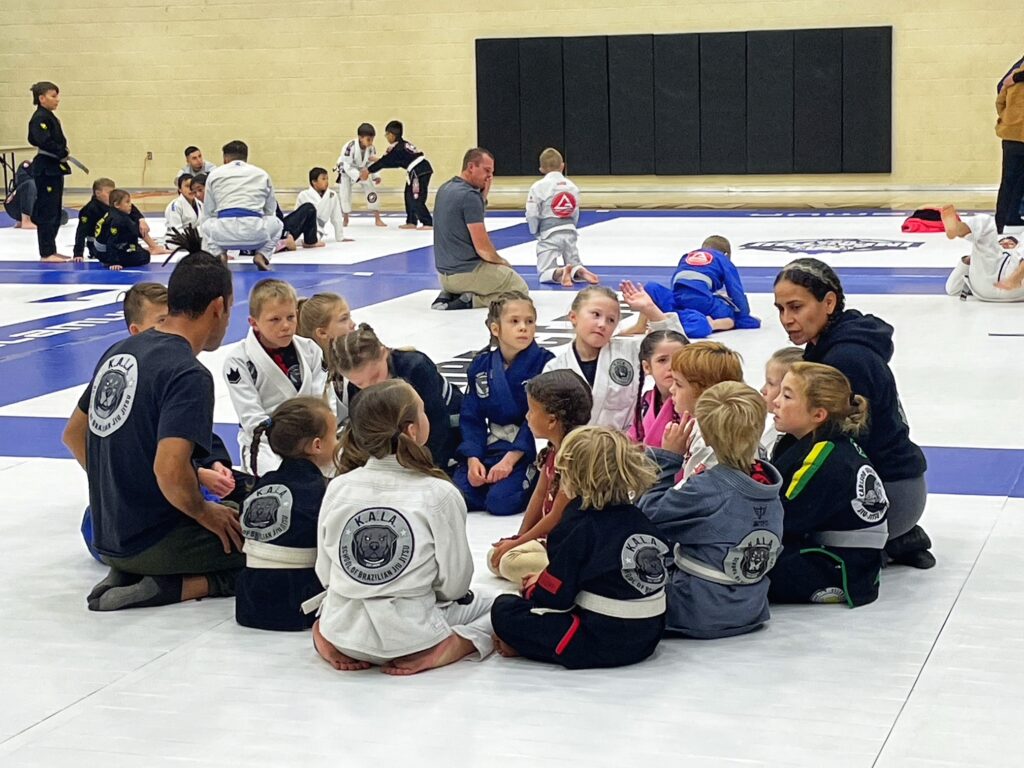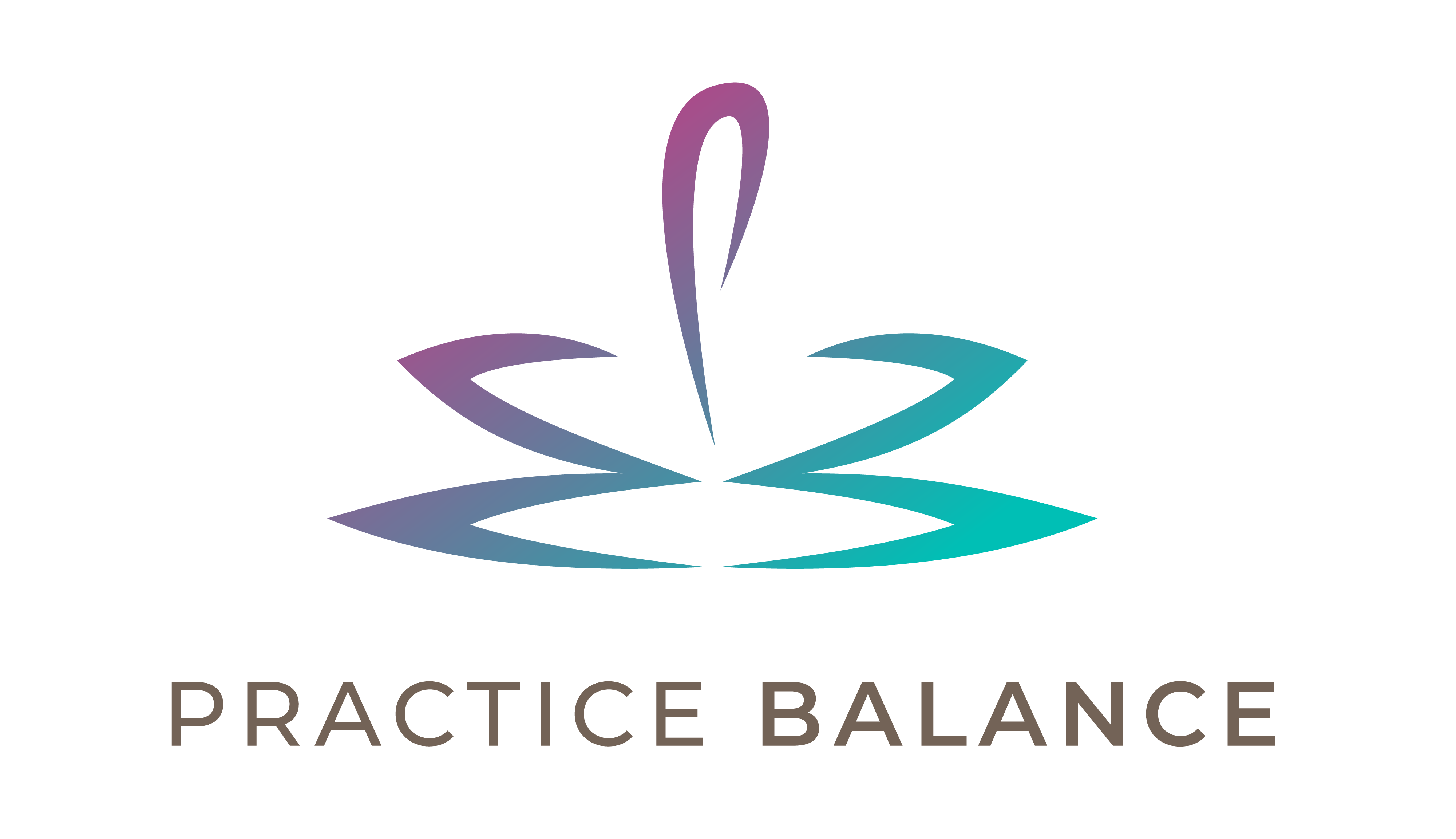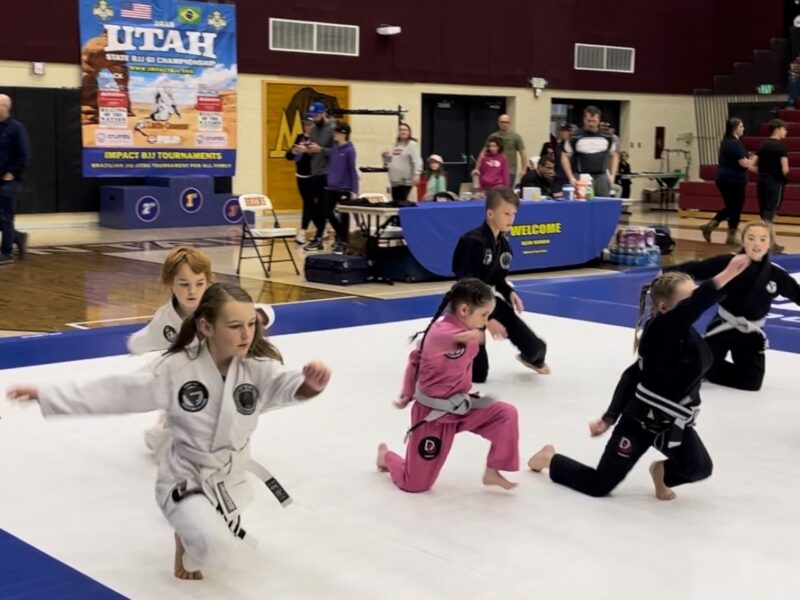All over the internet, you see proud parents posting about amazing things their kids have done – winning games, earning trophies, getting awards.
It’s beautiful… but also incomplete.
There are so many things our loved ones do that don’t fit the outward metrics of success and adoration, and it’s my opinion that we should celebrate those things just as frequently.
The Competition
The other day, my daughter competed in her first Brazilian Jiu Jitsu competition. She’s been training at a gym for several months, with additional weekly competition prep for the past few weeks. She’s so tall for her age that she ended up in a bracket with 5 other girls 1-2 years older.
Although we vowed to not be those parents, living vicariously through their children’s successes and striving to raise the next Tiger Woods, I have to admit… I was super excited about it all. It felt like a rite of passage: my first time cheering on my child at a competitive event!

Fast forward to her two comp matches: she lost her first match by points, and she got disqualified from her second match.
Done. Over in less than 30 seconds.
I ran to her. “What happened?” I said.
“I don’t know!” Tears filled her eyes.
There was frantic discussion in Portuguese at the judge’s table amongst the referee, all the black belts, and her coaches. The ref’s decision would stand. She had made an illegal move (knee reaping) and would not be allowed to continue her round.
It was frustrating to everyone because apparently kids are typically issued warnings for doing such things. After being defeated in her first match, she would not even have a chance to score points in another. The floodgates opened, and we left the arena to process a storm of tears.
How I Responded
I was worried that she was too young for a competition like this. We had talked ahead of time about how she’s new to BJJ, hasn’t competed, etc. and should not expect to win. In BJJ (and life), there is a saying: “You win or you learn.” We reminded Aspen about this frequently before the comp.
But when your child is ugly crying in your arms, it’s hard to stay composed. Here’s the way I dealt with this:
- Lots of hugs and lots of silence. I started by just sitting with her and didn’t talk too much. I told her it was ok, and she had tried her best. When she would make a comment like, “I want to quit” or “I’m really bad at this,” I would refute them calmly.
- Helping her identify her feelings. I asked her what she was feeling. She knows this question well, as we’ve gone through it before. Sometimes she’ll angrily say things like, “I feel you’re not being fair!” but she knows I’ll correct her and tell her that’s not a feeling. This time, she was able to identify feeling frustrated and embarrassed. Mostly embarrassed. Why? I asked. To Aspen, a 7 year old child in her first experience of competitive sports, hearing the words “illegal move” brought a flood of emotions. She literally thought the police were going to come for her!
- Distinguishing between things that are in her control and things that are not. She agreed that her preparation, her thoughts, and her actions are in her control – not what the ref or the other competitors do.
- Emphasizing what she learned and what went well. She enjoyed being with her team members, and she was able to identify that she got a real rush from their group warmup before the matches. On the flip side, she learned what not to do in a competition. She also learned the point system for BJJ matches, and that she needs to work on her takedowns instead of always trying to use the same moves.
- Making her do the really hard thing: move on. We needed to go back into the arena to collect Dad and our stuff, but Aspen did not want to show her face. I told her the most difficult thing she would do that day is go back in there with her head held high, not worrying about other people watching her. They aren’t watching anyway. And after some time, she did it.

Instilling a Growth Mindset
A growth mindset, as opposed to a fixed mindset, allows you to see challenges and failures as opportunities for learning. When it comes to kids, a key component of this is praising them for their efforts as opposed to their abilities. More emphasis should be placed on the process and what you learn vs. a certain outcome (like winning a medal).
I grew up with a pretty fixed mindset about my abilities. Smart. Good at music. Not good at sports. While I was given opportunities to play sports, I never really tried because I had the belief that I wouldn’t succeed. I stuck with what I was good at… until I became an adult and recognized the beauty and growth in challenge. It has shaped so many things in my life: becoming a doctor, rock climbing, travel, writing a book… the list is endless.
My daughter has already done something I regret not doing earlier in my life. She’s already pushed herself, tried a new thing, and adjusted her attitude when she didn’t experience initial, traditional success.
I couldn’t be prouder.
What she learned from this competition is so much more important than her performance.
Do you have any tips for supporting kids through the ups and downs of competitive sports? How do you teach a growth mindset to your kids? What did I miss with my approach?
Leave me a comment or contact me a tell me about it.
(This post can also be listened to as a podcast episode below.)



 Lean Out Podcast: Intensity with Stella de la Vega
Lean Out Podcast: Intensity with Stella de la Vega
